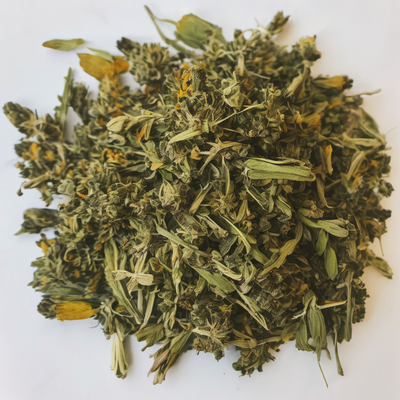
Discover the magical properties of the Mexican Dream Herb and how it can be used as a powerful herbal remedy for various ailments.
The Mexican Dream Herb, scientifically known as Calea zacatechichi, is a plant native to Mexico. It has a long history of use in traditional Mexican medicine and indigenous cultures. The herb has been used for centuries by the Chontal people of Oaxaca for its dream-enhancing properties.
According to ancient folklore, the Mexican Dream Herb was considered a sacred plant that could induce vivid and prophetic dreams. It was believed to have the power to connect individuals with the spirit world and provide insights and guidance through dreams.
The herb was traditionally used by shamans and healers in spiritual rituals and ceremonies. It was also used as a tool for divination and to enhance the dream state during lucid dreaming practices.
The Mexican Dream Herb is primarily used for its potential medicinal properties. It is believed to have various health benefits and is commonly used as an herbal remedy for different ailments.
One of the main traditional uses of the Mexican Dream Herb is for its dream-enhancing properties. It is believed to promote vivid and lucid dreaming, allowing individuals to have more meaningful and insightful dreams.
In traditional Mexican medicine, the herb is also used for its potential calming and relaxing effects. It is believed to have mild sedative properties, which can help with anxiety, stress, and insomnia. Some people also use it to enhance meditation and promote a sense of tranquillity.
Additionally, the Mexican Dream Herb is sometimes used as a digestive aid. It is believed to have carminative properties, which can help relieve indigestion, bloating, and stomach discomfort.
It's important to note that while the Mexican Dream Herb has a long history of traditional use, scientific research on its medicinal properties is limited. More studies are needed to fully understand its potential benefits and effects.
The Mexican Dream Herb can be prepared and consumed in various ways depending on personal preference.
One common method is to brew the dried leaves of the herb into a tea. To make the tea, simply steep a teaspoon of dried Mexican Dream Herb leaves in hot water for about 10 minutes. You can sweeten the tea with honey or add a splash of lemon juice for flavour.
Another popular method is to smoke the dried leaves of the herb. Some people believe that smoking the herb can enhance its dream-inducing effects. However, it's important to note that smoking any substance can have potential health risks, so it's advisable to use caution and moderation.
The Mexican Dream Herb is also available in capsule or tincture form for those who prefer a more convenient option.
It's recommended to start with a low dosage and gradually increase as needed. It's also advisable to consult with a healthcare professional before using the Mexican Dream Herb, especially if you have any underlying medical conditions or are taking medications.
While the Mexican Dream Herb is generally considered safe for most people when used appropriately, there are a few potential side effects to be aware of.
Some individuals may experience an upset stomach or gastrointestinal discomfort after consuming the herb. In rare cases, it may cause allergic reactions in sensitive individuals. If you experience any adverse effects, it's advisable to discontinue use and consult with a healthcare professional.
It's important to note that the Mexican Dream Herb may interact with certain medications, such as sedatives and antidepressants. If you are taking any medications, it's recommended to talk to your healthcare provider before using the herb to avoid any potential drug interactions.
Pregnant and breastfeeding women should also avoid using the Mexican Dream Herb due to the limited research available on its safety during pregnancy and lactation.
As with any herbal remedy, it's always best to use caution, do thorough research, and consult with a healthcare professional before using the Mexican Dream Herb.
The Mexican Dream Herb can be found in various forms, including dried leaves, capsules, and tinctures.
You can purchase dried Mexican Dream Herb leaves from specialty herb stores, natural health stores, or online herbal retailers. When buying the herb, make sure to choose a reputable source that offers high-quality, organic products.
Capsules and tinctures of Mexican Dream Herb can also be found at some health food stores or online retailers specializing in herbal supplements.
When purchasing any form of the Mexican Dream Herb, it's important to read product labels, follow recommended dosages, and check for any additional ingredients or additives.
Remember to consult with a healthcare professional before using the Mexican Dream Herb to ensure it is suitable for your individual needs and to avoid any potential interactions or adverse effects.
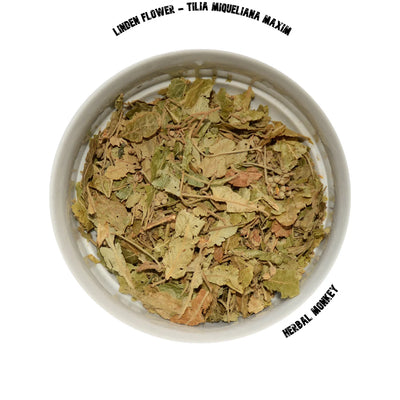
Uncover the incredible health advantages of incorporating linden flower into your daily routine.
Linden flower, also known as Tilia, is a type of flowering tree that belongs to the Tiliaceae family. It is native to Europe and North America and has a rich history dating back centuries. The use of linden flower can be traced back to ancient civilizations such as the Egyptians, Greeks, and Romans, who valued it for its medicinal properties and soothing effects.
According to historical records, linden flower was often used as a symbol of love and friendship. It was believed to promote relaxation and calmness, making it a popular choice for herbal teas and infusions. Over the years, linden flower has been used for various purposes, including treating anxiety, promoting sleep, and supporting respiratory health.
Linden flower is rich in various nutrients that contribute to its health benefits. It contains antioxidants, such as flavonoids, which help protect the body against oxidative stress and inflammation. Additionally, linden flower is a good source of vitamins and minerals, including vitamin C, calcium, and magnesium.
The flowers of the linden tree can be dried and used to make tea or infused into oils and extracts. This allows for the extraction of the beneficial compounds found in linden flower, making it a convenient way to incorporate its nutritional value into your diet.
Linden flower offers a range of health benefits that can support overall well-being. Some of the key benefits include:
- Promotes relaxation and reduces anxiety: Linden flower has calming properties and can help reduce stress and anxiety. It is often used in herbal remedies to promote relaxation and improve sleep quality.
- Supports respiratory health: Linden flower has been traditionally used to alleviate respiratory symptoms, such as coughs, colds, and sore throats. It can help soothe irritation and reduce inflammation in the respiratory system.
- Boosts the immune system: The antioxidants present in linden flower can help strengthen the immune system and protect against various diseases and infections.
- Supports digestion: Linden flower has a mild diuretic effect and can help promote healthy digestion. It may aid in relieving symptoms of indigestion, bloating, and constipation.
- Provides relief for headaches and migraines: The calming properties of linden flower can help alleviate headaches and migraines, providing relief from pain and discomfort.
It is important to note that while linden flower has many potential health benefits, individual results may vary. It is always advisable to consult with a healthcare professional before incorporating any new herbs or supplements into your routine.
There are several ways to incorporate linden flower into your diet and enjoy its health benefits. Here are a few ideas:
- Linden flower tea: Steep dried linden flowers in hot water to make a soothing and aromatic tea. You can enjoy it plain or add a touch of honey or lemon for extra flavor.
- Linden flower-infused oil: Infuse linden flowers into oil, such as olive oil or coconut oil, to create a fragrant oil that can be used in cooking or as a topical treatment for skin conditions.
- Linden flower syrup: Make a sweet syrup by boiling linden flowers with sugar and water. This syrup can be drizzled over desserts or added to beverages for a floral twist.
- Linden flower tincture: Create a tincture by soaking linden flowers in alcohol or vinegar. This concentrated extract can be used in small doses for medicinal purposes.
Remember to source linden flowers from reputable suppliers and follow proper preparation methods to ensure safety and quality.
While linden flower is generally considered safe for most people, there are a few precautions to keep in mind:
- Allergies: Some individuals may be allergic to linden flower. If you have a known allergy to flowers or plants in the Tiliaceae family, it is best to avoid linden flower.
- Pregnancy and breastfeeding: It is recommended that pregnant or breastfeeding women avoid linden flower, as there is limited research on its safety during these periods.
- Medication interactions: Linden flower may interact with certain medications, including sedatives and blood pressure medications. If you are taking any medications, it is important to consult with your healthcare provider before using linden flower.
- Dosage and moderation: Like any herbal supplement, it is important to use linden flower in moderation and follow recommended dosage guidelines. Excessive consumption may lead to adverse effects.
If you experience any adverse reactions or have concerns about using linden flower, it is best to seek advice from a healthcare professional.
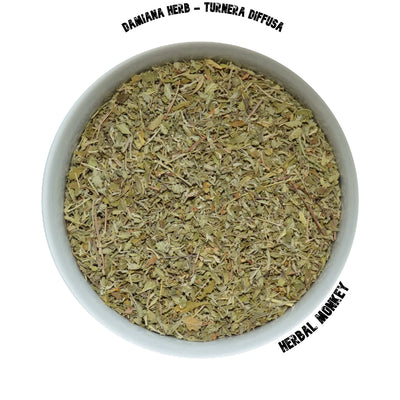
Explore the ancient uses of Damiana herb in traditional medicine and discover its various benefits.
Damiana herb has a long history of use in traditional medicine. It has been used by indigenous cultures in Central and South America for centuries, with records dating back to the ancient Mayan civilization. The herb was highly regarded for its medicinal properties and was commonly used to treat various ailments.
In traditional medicine, Damiana herb was often used as an aphrodisiac to enhance sexual function and libido. It was believed to have stimulating effects on the reproductive system and was used to improve fertility and sexual performance.
Furthermore, Damiana herb was used as a general tonic for the nervous system. It was believed to have a calming and relaxing effect, helping to reduce anxiety and promote a sense of well-being. The herb was also used to improve digestion, relieve constipation, and support overall digestive health.
Overall, the history of Damiana herb in traditional medicine is rich and fascinating. Its use spans centuries and multiple cultures, highlighting its importance in ancient healing practices.
Damiana herb is known for its many medicinal properties. It contains various active compounds, including flavonoids, terpenes, and phenolic acids, which contribute to its therapeutic effects.
One of the key medicinal properties of Damiana herb is its aphrodisiac effect. It is believed to enhance sexual function and libido by increasing blood flow to the reproductive organs and stimulating the release of hormones.
Additionally, Damiana herb has been found to have anti-anxiety and mood-enhancing properties. It is believed to calm the nervous system and promote relaxation, helping to reduce anxiety and stress.
Furthermore, Damiana herb has been traditionally used as a digestive tonic. It is believed to stimulate digestion, improve nutrient absorption, and relieve digestive discomfort.
These are just a few examples of the medicinal properties of Damiana herb. Its wide range of therapeutic effects make it a valuable herb in traditional medicine.
Damiana herb has been used for various purposes in traditional medicine. Some of the common uses include:
- Enhancing sexual function and libido
- Reducing anxiety and promoting relaxation
- Improving digestion and relieving digestive discomfort
- Boosting energy and reducing fatigue
- Supporting overall well-being and vitality
These are just a few examples of the many ways Damiana herb has been used in traditional medicine. Its versatility and wide range of benefits make it a popular choice among herbal practitioners.
While Damiana herb is generally considered safe for most people, there are some potential side effects and precautions to be aware of.
Firstly, Damiana herb may have a stimulating effect on the uterus and should be avoided during pregnancy as it may cause contractions.
Additionally, some people may be allergic to Damiana herb and may experience allergic reactions such as skin rashes or difficulty breathing.
Furthermore, Damiana herb may interact with certain medications, including antidiabetic drugs, anticoagulants, and sedatives. It is important to consult with a healthcare professional before using Damiana herb, especially if you are taking any medications.
It is also worth noting that Damiana herb may have a mild laxative effect and may cause increased bowel movements in some individuals.
Overall, while Damiana herb is generally safe, it is important to use it with caution and seek professional advice if you have any concerns or underlying health conditions.
In recent years, Damiana herb has gained popularity in modern wellness practices. It is often used as a natural remedy for various health conditions and as a supplement for overall well-being.
One common way to incorporate Damiana herb into modern wellness practices is by making herbal teas or infusions. Damiana leaves can be steeped in hot water to create a refreshing and aromatic tea that can be enjoyed throughout the day.
Another popular method is to use Damiana herb in herbal smoking blends. The dried leaves can be mixed with other herbs and smoked for their relaxing and mood-enhancing effects.
Furthermore, Damiana herb can be found in various forms such as capsules, tinctures, and extracts, making it easy to incorporate into daily routines.
It is important to note that while Damiana herb is considered safe, it is always recommended to consult with a healthcare professional before starting any new herbal regimen.
In conclusion, Damiana herb has a long history of use in traditional medicine and continues to be valued for its various benefits. Whether used for its aphrodisiac effects, calming properties, or digestive support, Damiana herb remains a valuable herb in both traditional and modern wellness practices.
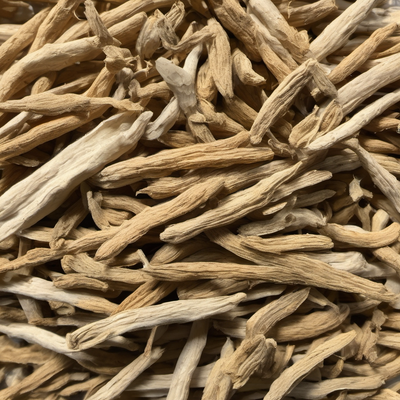
Explore the differences between Ashwagandha and Black Cohosh in treating anxiety to determine which one may be more effective for you.
Ashwagandha and Black Cohosh are both natural herbal remedies that have been used for centuries in traditional medicine. While they may have some similarities, they also have distinct differences in terms of their origins, properties, and effects on anxiety.
Ashwagandha, also known as Withania somnifera, is a small shrub native to India and North Africa. It is commonly used in Ayurvedic medicine for its adaptogenic properties, which help the body adapt to stress and promote overall well-being. On the other hand, Black Cohosh, scientifically known as Actaea racemosa, is a plant native to North America and is often used to alleviate menopause symptoms.
When it comes to treating anxiety, Ashwagandha and Black Cohosh work in different ways. Ashwagandha is believed to reduce anxiety by modulating the body's stress response system and regulating the levels of stress hormones like cortisol. It is also known to have calming effects and promote relaxation. Black Cohosh, on the other hand, may help alleviate anxiety symptoms indirectly by reducing other menopause-related symptoms like hot flashes and mood swings.
Ashwagandha has gained popularity in recent years for its potential benefits in managing anxiety. Some of the key benefits and uses of Ashwagandha for anxiety include:
- Reducing stress and promoting relaxation: Ashwagandha has adaptogenic properties that help the body cope with stress and promote a sense of calm.
- Improving mood: Research suggests that Ashwagandha may have mood-enhancing effects and can help alleviate symptoms of anxiety and depression.
- Enhancing sleep quality: Ashwagandha has been found to improve sleep patterns and promote better sleep quality, which can indirectly reduce anxiety symptoms.
- Boosting cognitive function: Studies have shown that Ashwagandha may improve cognitive function, including memory and attention, which can be beneficial for individuals with anxiety.
It is important to note that while Ashwagandha may have potential benefits for anxiety, it is not a substitute for professional medical advice. It is always recommended to consult with a healthcare provider before starting any new herbal supplement.
Black Cohosh has a long history of traditional use in Native American medicine for various health conditions, including anxiety. Some of the benefits and uses of Black Cohosh for anxiety include:
- Alleviating menopause-related anxiety: Black Cohosh is often used to reduce anxiety symptoms associated with menopause, such as hot flashes, mood swings, and irritability.
- Supporting hormonal balance: Black Cohosh is believed to have estrogen-like effects and may help regulate hormonal imbalances that contribute to anxiety.
- Promoting relaxation and sleep: Black Cohosh has mild sedative properties that can help induce relaxation and improve sleep quality, which can be beneficial for individuals with anxiety.
While Black Cohosh may offer potential benefits for anxiety, it is important to consult with a healthcare provider, especially for individuals with pre-existing medical conditions or those taking other medications.
Ashwagandha is generally considered safe for most people when taken in appropriate doses. However, it may cause some side effects in certain individuals. Some of the potential side effects and risks of Ashwagandha include:
- Upset stomach or digestive issues
- Headache or dizziness
- Allergic reactions in rare cases
It is important to follow the recommended dosage guidelines and consult with a healthcare provider if you experience any adverse effects while taking Ashwagandha.
Black Cohosh is generally well-tolerated by most individuals when used in recommended doses. However, it may cause some side effects and risks in certain cases. Some of the potential side effects and risks of Black Cohosh include:
- Upset stomach or gastrointestinal issues
- Headache or dizziness
- Liver toxicity in rare cases
It is important to note that individuals with liver conditions or a history of liver problems should exercise caution when using Black Cohosh. It is always advisable to consult with a healthcare provider before starting any new herbal supplement.
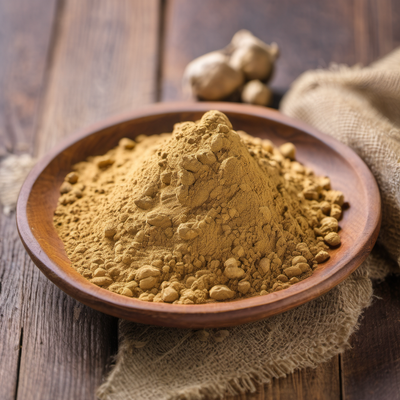
Discover the benefits and sources of organic maca root powder in this informative blog post.
Maca root, also known as Lepidium meyenii, is a plant native to the high Andes mountains of Peru. It has been cultivated and used by the indigenous people of the region for thousands of years. The plant belongs to the brassica family, which includes vegetables like broccoli and cabbage. Maca root has a long history of traditional use as a medicinal herb and is considered a sacred plant by the indigenous people.
The cultivation of maca root dates back to ancient times, and it was highly valued for its nutritional and medicinal properties. The plant grows at high altitudes, where the climate is harsh and the soil is nutrient-rich. This unique environment contributes to the plant's ability to adapt and thrive. Maca root is known for its ability to withstand extreme weather conditions and has been used as a source of food and medicine for generations.
Organic maca root powder offers numerous health benefits. It is rich in vitamins, minerals, and antioxidants, making it a nutritious addition to any diet. Some of the potential benefits of consuming maca root powder include increased energy levels, improved mood and mental clarity, enhanced sexual function, and hormonal balance.
Additionally, maca root powder is believed to support overall well-being and may help with conditions such as fatigue, stress, and hormonal imbalances. It is also known to have adaptogenic properties, meaning it can help the body adapt to stress and promote resilience.
Furthermore, maca root powder is a great source of plant-based protein and fiber. It can be a valuable addition to a vegan or vegetarian diet, providing essential nutrients and promoting digestive health.
There are several different types of maca root powder available on the market. The most common types include yellow maca, red maca, and black maca. Each type has its own unique properties and potential health benefits.
Yellow maca is the most widely available and commonly used type of maca root powder. It is known for its mild, nutty flavor and is often used in smoothies, baked goods, and other recipes. Yellow maca is believed to support overall vitality and endurance.
Red maca, on the other hand, has a slightly sweeter and stronger taste. It is known for its potential to enhance fertility and libido. Red maca is often used by both men and women to support reproductive health.
Black maca is considered the most potent and rarest form of maca root powder. It has a strong, earthy flavor and is believed to have the highest concentration of beneficial compounds. Black maca is often used by athletes and individuals seeking increased stamina and athletic performance.
When choosing organic maca root powder, it is important to look for high-quality sources. Here are some tips to help you identify the best options:
- Choose organic: Opt for maca root powder that is certified organic to ensure it is free from pesticides and other harmful chemicals.
- Check the source: Look for maca root powder sourced from reputable regions known for their high-quality maca cultivation, such as the Peruvian Andes.
- Consider the production process: Ideally, choose maca root powder that is made from raw maca that has been dried and ground at low temperatures to preserve its nutrients.
- Read customer reviews: Check online reviews and feedback from other customers to get an idea of the quality and effectiveness of the product.
By following these guidelines, you can ensure that you are purchasing high-quality organic maca root powder.
Organic maca root powder can be found in various health food stores, natural grocery stores, and online retailers. It is important to choose a reputable source to ensure the quality and authenticity of the product. Some well-known brands that offer organic maca root powder include Navitas Organics, Terrasoul Superfoods, and Anthony's Goods.
When purchasing online, make sure to read product descriptions, customer reviews, and check for certifications to ensure you are getting a genuine organic product. It is also a good idea to compare prices and look for any special promotions or discounts.
In conclusion, organic maca root powder is a powerful superfood with numerous health benefits. By understanding its origin, benefits, different types, and how to identify high-quality options, you can make an informed decision and incorporate this nutritious powder into your diet.
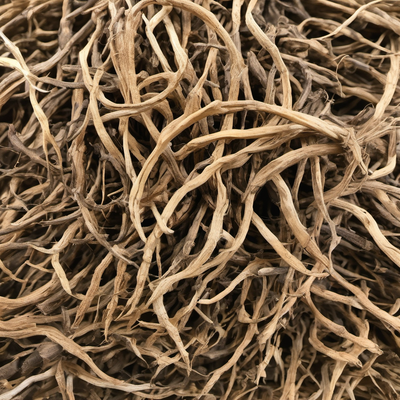
Unlock the secrets of the African Dream Root, a powerful herbal remedy for vivid dreams and lucid dreaming.
African Dream Root, scientifically known as Silene capensis, is a plant native to South Africa. It is also referred to as African dream herb, Xhosa dream root, or ubulawu. This herb has been used for centuries by the Xhosa people of South Africa to induce vivid dreams and enhance dream recall.
The African Dream Root is believed to have spiritual and medicinal properties. It is traditionally used by shamans and healers in rituals and ceremonies. The root is known for its ability to connect individuals with their ancestors and the spirit world, providing guidance and insight through dreams.
The African Dream Root offers several potential benefits for those interested in exploring their dreams and achieving lucid dreaming. Some of the benefits include:
- Enhanced dream recall: African Dream Root is believed to improve dream recall, making it easier to remember and analyse dreams.
- Vivid and lucid dreams: Many users report experiencing more vivid and lucid dreams after using African Dream Root. This can lead to a deeper exploration of the dream world and increased self-awareness.
- Spiritual connection: African Dream Root is known for its ability to facilitate spiritual experiences and connect individuals with their ancestors or the divine.
- Insight and guidance: Dreams induced by African Dream Root are often seen as messages or guidance from the spiritual realm, providing insights into personal issues and life challenges.
Using African Dream Root requires careful preparation and respect for its traditional use. Here are the steps to use African Dream Root:
1. Obtain African Dream Root: You can purchase African Dream Root online or from specialized herbal stores. Ensure that you are buying from a reputable source.
2. Prepare the root: African Dream Root is typically consumed as a powder or made into a tea. Grind the root into a fine powder using a mortar and pestle.
3. Set your intentions: Before using African Dream Root, take a moment to set your intentions for your dream experience. This could be exploring a particular issue, seeking guidance, or simply enhancing dream recall.
4. Ingest the root: African Dream Root can be consumed in different ways. You can mix the powder with water or juice and drink it, or brew it into a tea. Follow the recommended dosage instructions provided with the product.
5. Create a dream-friendly environment: To enhance your dream experience, create a calm and comfortable sleep environment. Keep a dream journal by your bed to record your dreams upon waking.
6. Reflect on your dreams: After using African Dream Root, take time to reflect on your dreams and any insights or messages they may contain. Consider discussing them with a trusted friend or journaling about your experiences.
While African Dream Root is generally considered safe for use, it is important to be aware of potential side effects and take necessary precautions. Some considerations include:
- Allergic reactions: Individuals with allergies to plants in the Caryophyllaceae family may experience allergic reactions to African Dream Root. If you are unsure about potential allergies, consult with a healthcare professional before using the herb.
- Dosage: It is important to follow the recommended dosage instructions provided with the African Dream Root product. Taking excessive amounts may lead to unwanted side effects.
- Pregnancy and breastfeeding: The safety of African Dream Root during pregnancy and breastfeeding has not been studied extensively. It is best to avoid using this herb during these periods to ensure the well-being of both the mother and the baby.
- Drug interactions: African Dream Root may interact with certain medications. If you are taking any prescription medications, it is advisable to consult with a healthcare professional before using African Dream Root.
If you experience any adverse reactions or discomfort after using African Dream Root, discontinue its use and consult with a healthcare professional.
African Dream Root can be purchased from various online retailers specializing in herbal remedies. It is important to ensure that you are buying from a reputable source to ensure the quality and authenticity of the product. Some popular online platforms for purchasing African Dream Root include:
- Amazon: A wide range of African Dream Root products are available on Amazon, including powders and teas.
- Herbal stores: Check your local herbal stores or health food stores that carry a selection of herbal remedies. They may have African Dream Root in stock.
- Online herbal retailers: There are several online stores that specialize in selling herbal remedies and offer a variety of African Dream Root products.
When purchasing African Dream Root, read reviews, check the product's ingredients and certifications, and choose a trusted seller to ensure you are getting a genuine and high-quality product.